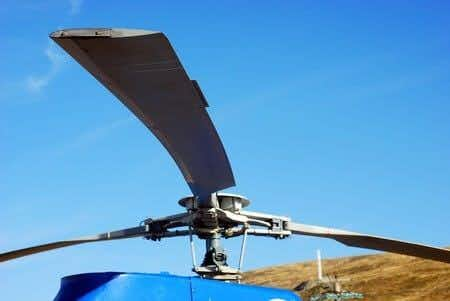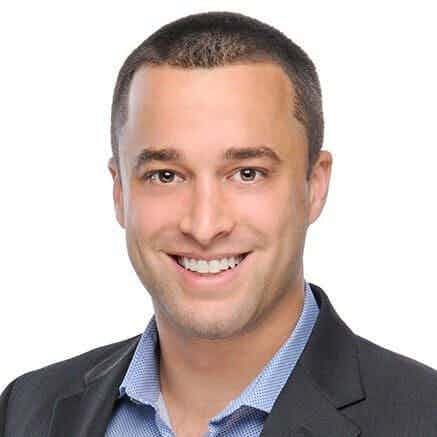CASE: Robertson-Armstrong v. Robinson Helicopter Co., 2015 U.S. Dist. LEXIS 156354
BACKGROUND:
Plaintiff Julia Robertson-Armstrong (“Robertson-Armstrong”) was severely injured on July 20, 2011 when a helicopter in which she was a passenger crashed in New Jersey. She sued Robinson Helicopter Company, Inc. (“Robinson”), the manufacturer of the helicopter. Her complaint included claims for strict liability, negligence, negligent misrepresentation and omission, and fraud against Robinson, some of which would require the support of a metallurgy expert witness. Robinson then filed a number of pretrial motions challenging Robertson-Armstrong’s experts under Daubert v. Merrel Dow Pharmaceuticals, 509 U.S. 579, 113 S. Ct. 2786, 125 L. Ed. 2d 469 (1993), and Rule 702 of the Federal Rules of Evidence.
Expert Witness:
Robertson-Armstrong sought to introduce the opinions of William Carden (“Carden”) and Eric Van Iderstine (“Van Iderstine”) on subjects which included alleged design defects, the availability and use of purportedly safer alternative designs, crashworthiness and airworthiness, Federal Aviation Administration (“FAA”) standards, injury causation, aviation safety, aviation appraisal and biomechanics. Both Carden and Van Iderstine were employees of McSwain, a Florida-based engineering consulting firm, and have previous experience as metallurgy expert witnesses. According to the report provided by McSwain to Robertson-Armstrong’s counsel, the company specialized in “materials engineering, mechanical engineering, and forensic chemistry” and had the capacity to conduct failure analyses and engineering investigations.
Carden, who had worked for McSwain since 2006, was trained in materials engineering and specialized in metallurgy. He was also a licensed professional engineer. His work focused on failure analyses of various engineering materials, and he had been called upon to test and assess aircraft structures and components on numerous occasions. He stated in an affidavit that he had also analyzed and tested “seats, restraint systems, the materials and components of these systems, and similar systems” in accident investigations, though it was not clear whether he was referring to aircraft seat systems specifically or to vehicle seats generally.
Like Carden, Van Iderstine was an experienced engineer and metallurgy expert witness, though his work focused on mechanical engineering. A registered professional engineer, Van Iderstine had worked since 2005 for McSwain, where he contributed to mechanical testing, component and system modeling, element and failure analysis, and accident investigation. Prior to his employment with McSwain, Van Iderstine worked in various capacities for a company called HMC Technologies, where he contributed to the maintenance, design, and assembly of mechanical systems for aerospace, medical, automotive, and military applications. His role at HMC Technologies involved conceptual engineering design on numerous mechanical systems, and he stated that during his time there he developed “extensive experience in the assembly and testing of seating and restraint systems.” Van Iderstine had also taken continuing education courses concerning the testing and analysis of acceleration data and the use of seating systems in crash and impact absorption and occupant protection.
Daubert Challenge:
Robinson challenged whether Carden and Van Iderstine should be permitted to present their opinions at trial. According to Robinson, neither was qualified to opine on the purported design defects of the R22 helicopter’s seats and restraints, on the helicopter’s compliance with federal airworthiness standards, or on injury causation and biomechanics. Robinson also contended that the testing methods relied upon by the two putative experts were not sufficiently reliable. Finally, Robinson argued that since Carden and Van Iderstine had not explained the relationship between their tests and the subject accident, their conclusions as metallurgy expert witnesses would “offer no assistance to the trier of fact.”
Conclusion:
Robertson-Armstrong asserted that Carden and Van Iderstine had ample qualifications to testify to their conclusions on the design of the subject helicopter, on the reaction of its design characteristics to the subject crash, and on the reaction of alternative design features to similar impacts. The court agreed with this. The court believed that it was clear from the materials submitted by the two putative experts that both had significant background in materials testing and in materials failure analysis. Further, Carden and Van Iderstine had contributed to the design and analysis of seating systems and restraints.
However, the Court found that Carden and Van Iderstine were not qualified to offer their opinions about regulatory compliance or about biomechanics and injury causation independent of the design of the seats in the subject helicopter. They were not permitted to testify about those topics. However, they were allowed to testify about the design of the subject helicopter and its seats and restraints, and about the availability of allegedly safer alternative seat and restraint designs. They were also permitted to testify about issues of biomechanics and injury causation insofar as these issues relate directly to the subject helicopter’s seats and restraints and to alternative designs for these seats and restraints. Carden and Van Iderstine are qualified to offer their opinions on those subjects, their methodology in reaching those opinions was reliable, and the opinions had a sufficient “fit” to the factual disputes in this matter.
About the author
Jared Firestone, J.D.
Jared Firestone, J.D., is a multi-disciplinary attorney with expertise in a range of legal areas. He founded and operated Firestone Law Firm PA in Hollywood, Florida, and worked as an Associate Attorney at Gustman Law P.C. in New York. His practice areas include Personal Injury, Criminal Defense, Medical Malpractice, Trusts & Wills, Civil and Commercial Litigation, Family Law, Real Estate, and Immigration. Additionally, he has experience in real estate, focusing on residential property in the Miami/Fort Lauderdale areas. Firestone also served as a pro bono Mediator at the Benjamin N. Cardozo School of Law Divorce Mediation Clinic. He holds a J.D. from Cardozo School of Law, where he honed skills in E-Discovery, Divorce Mediation, and Legal Writing, and a Bachelor’s degree in Philosophy from Tulane University.



